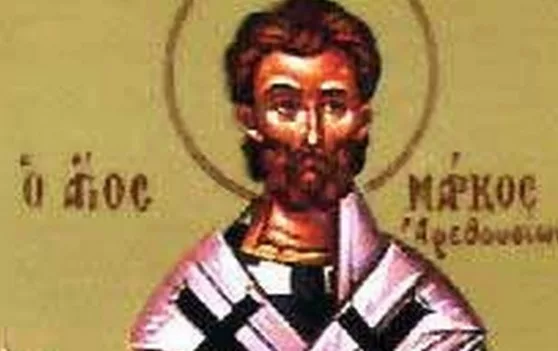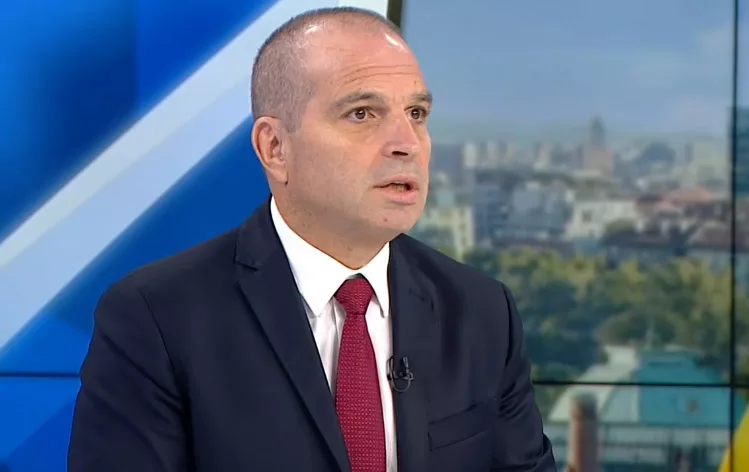On March 29, Friday, name day celebrates a heroic name
- By : Eкип на Вихрогон.бг
- Категория: USA news, Блиц Новини
- Tags: March 29 name day, name day, name day Marco

On March 29, Friday, name day celebrates a heroic name
On March 29, name day is celebrated by everyone who bears the name Marco.
Marko is the ancient Hebrew for wrestler. According to the Latin reading, however, the name is translated as masculine.
In the reign of Emperor Constantine the Great (337), when the Christian faith triumphed over paganism, churches were built in many cities and chapels were destroyed.
Many Christian bishops then received from the king the right to destroy the idol temples, among which was Bishop Marko of Aretus – a pious, holy and zealous man in spreading the true faith.
Soon terrible disturbances began in the empire: soldiers killed many relatives of the king and wanted to kill his nephews Gallus and Julian. The bishop of Aretusia saved them by hiding them in the church.
After the death of Constantine there were many disturbances of another kind; his successor Constantius patronized the heretical Arians and persecuted the orthodox. After Constantius, Julian ascended the throne, the same one whom Bishop Marco saved from death. From his youth, Julian hated the Christian faith, which he pretended to profess under Constantius. On becoming emperor, he immediately declared his support for paganism. He used all means to humiliate, oppress and insult Christians. Julian issued a decree – that the idol temples destroyed by the Christians should be rebuilt at the expense of those who destroyed them.
Bishop in Arethusa was still the same Marko, already very old and deeply respected by all for his pious and holy life.
The city authorities asked him for funds to restore the shrines that he had destroyed under Constantius. The bishop replied that he had no money, but even if he had, he would give nothing to a heathen temple. It was known that he was really poor, and the city authorities, reducing their demands, at length ordered him to contribute a trifling sum, threatening him with punishment in case of disobedience. Then terrible persecutions began against the Christians by the pagans, who were instigated by the king. In many cities the pagan population massacred the Christians and tortured them cruelly. The aged bishop was not afraid of the danger and repeated his refusal. Then they handed him over to the enraged people
. They beat the holy old man, dragged him through the streets, threw stones at him, tortured him to death, but they could not overcome his stubbornness. Barely alive, the old man still did not give up. In the end, the governor of the city saved him from the hands of the torturers. According to the historian Blessed Theodoret, many of the citizens of Arethusa, marveling at the steadfastness of the holy old man, converted to the Christian faith. At the same time, Deacon Kiril also suffered. Many Christians were tortured in various cities of Palestine, Egypt and Syria.
© Lives of the Saints. Synod Publishing House, Sofia, 1991, edited by Parthenius, Bishop of Levki and Archimandrite Dr. Athanasius (Bonchev).




 „Лъвицата “ Пекин обвини Алекс за поредната загуба в “Игри на волята”
„Лъвицата “ Пекин обвини Алекс за поредната загуба в “Игри на волята”
 Политолог: Пеевски се държи като министър-председател и държавен глава – Кралят Слънце
Политолог: Пеевски се държи като министър-председател и държавен глава – Кралят Слънце
 Васил Велев: Секторите „Сигурност“, „Отбрана“ и „Съдебна система“ не внасят осигуровки
Васил Велев: Секторите „Сигурност“, „Отбрана“ и „Съдебна система“ не внасят осигуровки
 Климатологът Симеон Матев: Сиромашкото лято тепърва ще дойде
Климатологът Симеон Матев: Сиромашкото лято тепърва ще дойде
 Обстановката над страната тепърва ще се усложнява
Обстановката над страната тепърва ще се усложнява
 Двамата каръци от ДАИ, поискали подкуп от екипа на Роби Уилямс са уволнени
Двамата каръци от ДАИ, поискали подкуп от екипа на Роби Уилямс са уволнени
